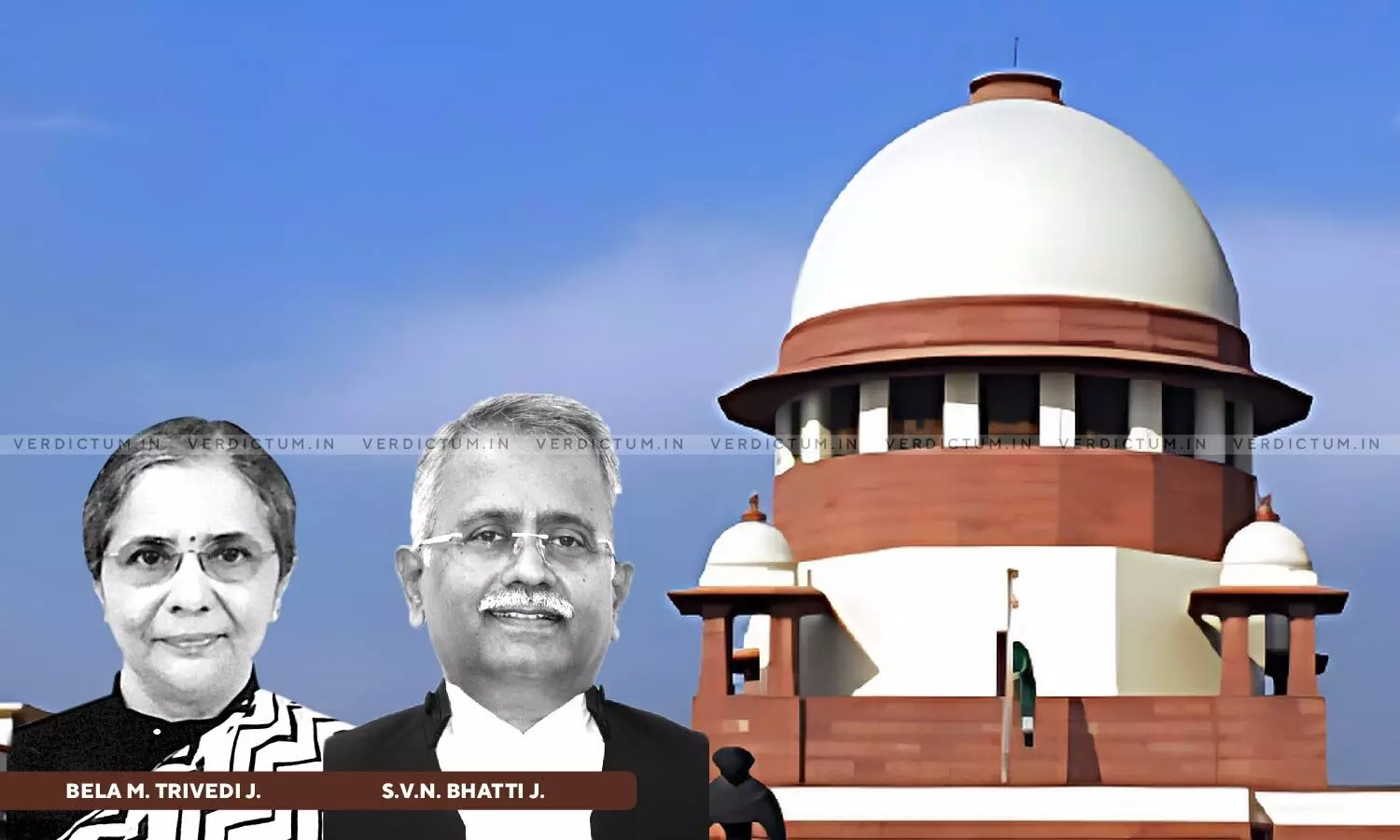
Fact That Plaintiff Earned Legal Standing Of Coparcener Cannot By Itself Would Be A Reason To Accept Prayer For Partition: SC
 |
|The Supreme Court while dealing with an appeal has held that the fact that the plaintiff has earned legal standing of a coparcener cannot, by itself, would be a reason to accept the prayer for partition.
The Court held this in a case relating to the amended Section 29A of the Hindu Succession Act, 1956 (Tamil Nadu Amendment Act).
The two-Judge Bench comprising Justice Bela M. Trivedi and Justice S.V.N. Bhatti observed, “There is no difficulty in expressing the plaintiff's position as a coparcenary member. The fact that the plaintiff has earned the legal standing of a coparcener cannot, by itself, would be a reason to accept the prayer for partition unless the plaintiff discharges the burden that the partial partition through Exhibit-A3 did not affect the coparcenary rights in Schedule-I appended to Exhibit-A3. The recitals in Exhibit A3 and subsequent deeds demonstrate that the property shown as a northern boundary to the ‘C’ Schedule is treated as property belonging to the first and second defendants.”
The Bench said that the plaintiff is legally obliged to discharge the burden that the plaint schedule is not only a coparcenary but continued to be so even as of March 25, 1989, and that the plaintiff is entitled to enforce the claim for partition.
Senior Advocate A.N. Venugopala Gowda appeared on behalf of the appellant while Advocate P.B. Suresh appeared on behalf of the respondents.
Facts of the Case -
The appellant’s (plaintiff’s) case was that her grandfather purchased the plaint schedule property together with the property on southern side of the said property through a registered sale deed in 1924. The first defendant was the only son of the plaintiff’s grandfather and inherited the property as Joint Hindu Family Property. The second defendant was the son of first defendant and the plaintiff was one of the daughters of the first defendant.
In 1974, the first and second defendants entered into an agreement of sale with the third defendant and the third defendant, enforcing the rights under the agreement filed an application before the civil court for specific performance but the same was dismissed. Being aggrieved, the third defendant approached the High Court which allowed the appeal. Thereafter, the plaintiff, defendants (excluding the third one), and other sisters entered into partial partition. The Trial Court dealt with all the issues and answered in favour of third defendant and the High Court also dismissed the plaintiff’s plea aggrieved by which she was before the Apex Court.
The Supreme Court after considering the submissions of the counsel noted, “The findings of the facts recorded do not warrant interference. Independent consideration of the above circumstances reinforces the conclusion the Courts below arrived in rejecting the suit prayers.”
The question before the Court was whether the plaint schedule has the colour of coparcenary as of 25.03.1989 and is available for partition
“In whichever way we appreciate, the plaintiff still failed to demonstrate that the plaint schedule continued to be a coparcenary available for partition”, said the Court.
Accordingly, the Apex Court dismissed the appeal.
Cause Title- H. Vasanthi v. A. Santha (Dead) through LRS. and Others (Neutral Citation: 2023 INSC 731)